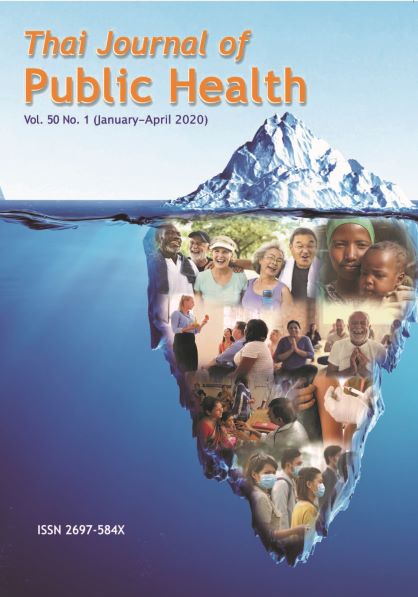Association between General Characteristics, Knowledge and Patient Activation among Patients with Type 2 Diabetes in Myanmar
Keywords:
Type 2 diabetes, Patient characteristics, Diabetes knowledge, Patient activationAbstract
The objectives of the study were to determine the level of diabetes knowledge and patient activation among patients with diabetes and to identify demographic, clinical and psychosocial factors involved in patient activation. A clinical-based cross-sectional study was conducted among patients with type 2 diabetes attending a diabetes specialist clinic in Yangon, Myanmar. In total, 250 participants gave written consent to participate in this study. To determine the level of knowledge and patient activation, face-to-face interviews were conducted using Patient Activation Measure (PAM) and Diabetes Knowledge Test (DKT) questionnaires. The mean score of PAM was 60.6 ± 13.6 and mean DKT score was 14.6 ± 4.6. Male patients had higher activation than females (OR=3.04, 95% CI=1.23-7.54, p=0.016). Smoking status and alcohol consumption were associated with PAM (OR=4.25, 95% CI=1.48-12.2, p=0.007) and a high level of patient activation (OR=5.42, 95% CI=1.66-17.7, p=0.005) respectively. High diabetes knowledge was significantly associated with high activation level (OR=16.6, 95% CI=5.91-46.4, p<0.001). Among patients with type 2 diabetes, patient activation level was especially related to disease-specific knowledge. High activation was significantly associated with sex, smoking status, alcohol consumption and diabetes knowledge. Sociodemographic and clinical characteristics, such as marital status, education level, occupational status, BMI and HbA1c had no influence on patient activation. Based on the results, many elderly patients with diabetes need to have more knowledge on diabetes and actively participate in controlling the disease.
Downloads
Published
Issue
Section
License
Creative Commons License CC-BY-ND


